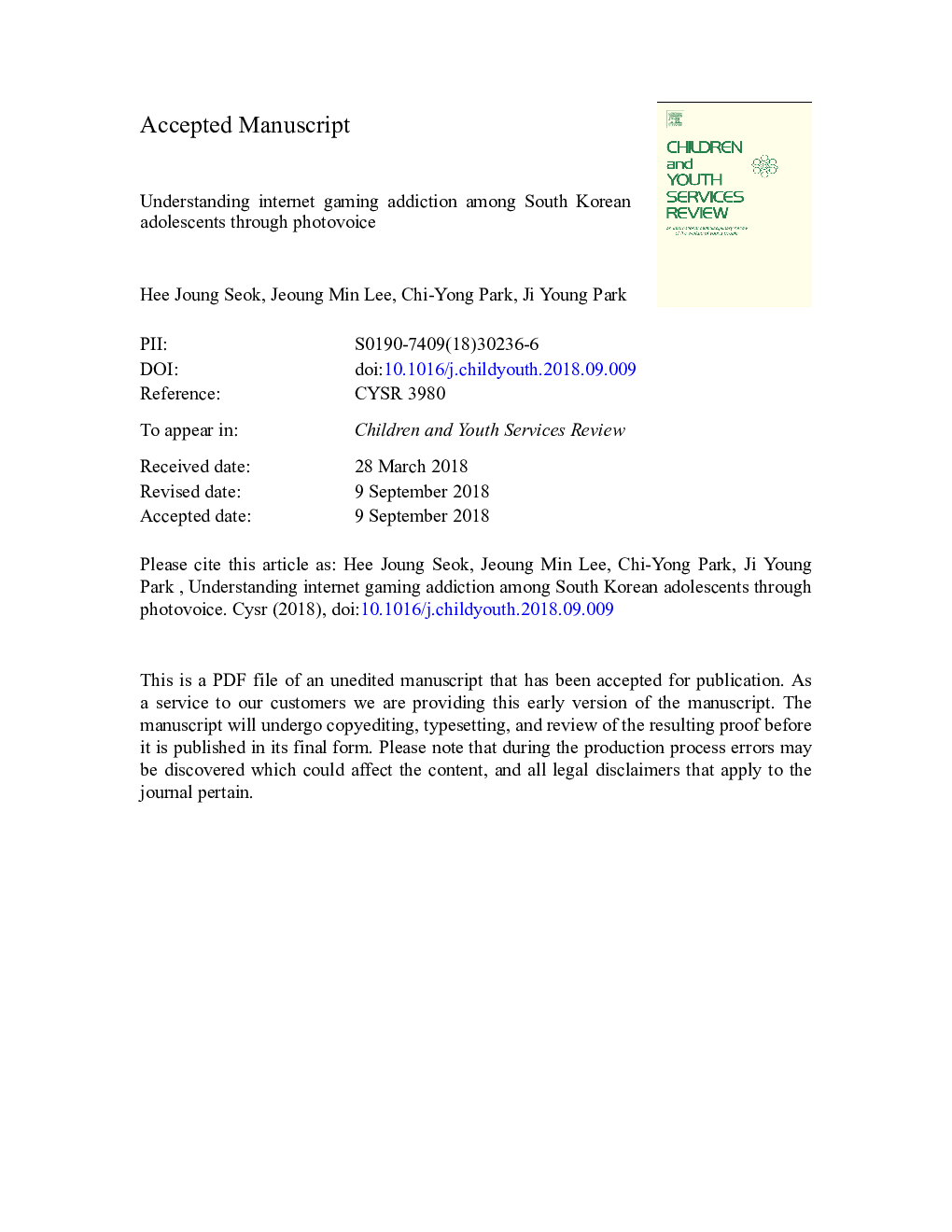| Article ID | Journal | Published Year | Pages | File Type |
|---|---|---|---|---|
| 10225621 | Children and Youth Services Review | 2018 | 33 Pages |
Abstract
Internet gaming addiction is a serious problem for some adolescents in South Korea, although it has not yet been fully explored. The present study aims to explore adolescents' motivations for internet games, how their lives are affected, how they perceive internet games, what they gained and lost, and how they made sense of internet gaming addiction. Interviews, focus groups, and photovoice with a sample of ten adolescents at risk of internet addiction were conducted. The participants reported serious symptoms of internet game addiction, which negatively affected their psychological health and self-identity. They also reported that they were aware of how internet games negatively affected their daily lives, academic performance, and family relationships worsened once they became addicted to internet games. However, they also perceived internet games as avenues for entertainment, stress relief, and peer bonding. Understanding adolescents' perceptions and meaning of internet gaming addiction can facilitate the development of effective psychosocial intervention programs, which can subsequently contribute to healthy coping strategies and positive adolescent development and identity.
Related Topics
Health Sciences
Medicine and Dentistry
Perinatology, Pediatrics and Child Health
Authors
Hee Joung Seok, Jeoung Min Lee, Chi-Yong Park, Ji Young Park,
